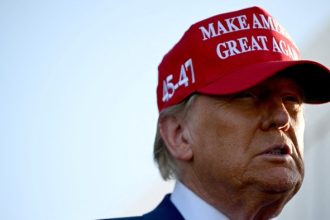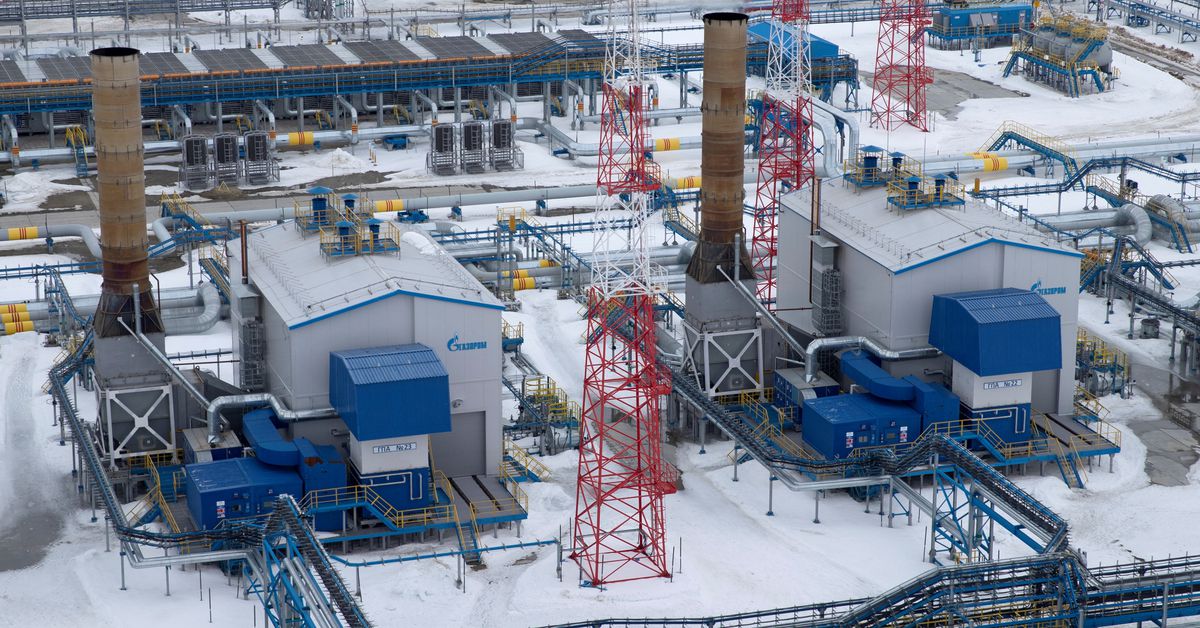[1/3]A view shows a gas processing facility, operated by Gazprom company, at Bovanenkovo gas field on the Arctic Yamal peninsula, Russia May 21, 2019. Picture taken May 21, 2019. REUTERS/Maxim Shemetov//
MOSCOW, July 21 (Reuters) – Increased supplies of liquefied natural gas (LNG) from Russia’s Novatek (NVTK.MM) mean the company is close to overtaking Kremlin-controlled Gazprom (GAZP.MM) as the country’s leading fuel supplier to Europe, Reuters calculations show.
Novatek’s rise towards the coveted top spot underlines how much the Ukraine conflict has disrupted Russia’s and the world’s energy industry as Europe turns to LNG and away from Gazprom’s network of pipelines that dominated European supply for decades.
Russia’s gas, in contrast to its oil, is not subject to Western sanctions, although Brussels is considering extending its embargo on Russian fuel.
The European Union has already sought to cut its reliance on Russian supplies and aspires to replace gas with renewable energy as it strives to curb its emissions. In the immediate term, it has increased its LNG imports.
Novatek, founded almost 29 years ago, secured Russian state support to expand in the LNG market following the launch of its vast Yamal LNG plant in northwest Siberia in 2017.
Reuters calculations, based on figures from Refinitiv Eikon data, showed that Gazprom’s total exports of LNG and pipeline gas supplies to Europe were around 13.8 billion cubic metres (bcm) between January 1 and July 15.
Novatek’s exports to the region in the same period amounted to 12.34 bcm.
Gazprom and Novatek have not replied to Reuters’ requests for comment.
“Gazprom has likely forever lost 65%-75% of its historical share of the European market,” Ronald Smith of Moscow-based brokerage BCS said.
However, he added it would be “very difficult” for Novatek to completely replace Gazprom in Europe, as Gazprom’s remaining customers have limited infrastructure to import LNG.
Gazprom’s gas exports, mainly to Europe, almost halved last year because of the political crisis over Ukraine and after undersea Nord Stream pipelines were damaged by unexplained blasts last September.
Germany and Italy remain among Gazprom’s largest customers in Europe.
PIPELINE DECLINE
Russia aims to secure a fifth of the global LNG market by 2035 from around 8% in 2022, while Russia’s pipeline exports, exclusively provided by Gazprom through a Soviet-built network, are steadily declining.
Natural gas is frozen to minus 163 Celsius (-261.4 Fahrenheit) to convert it to a liquid that can be shipped to any regasification terminal in the world, making it more flexible than pipeline gas.
To defend its position, Gazprom in 2006 secured a law that enabled it to become Russia’s sole exporter of natural gas via pipelines and sea-borne liquefied natural gas.
But Russia has since liberalised LNG trading to support projects by Novatek.
Novatek, meanwhile, has ramped up output from its Yamal LNG plant in the Arctic and plans to further boost LNG production at its new projects, which are due to come onstream in the coming years.
The leaderships of both Novatek and Gazprom have close ties with President Vladimir Putin and have publicly clashed over Novatek’s rising profile on the European gas market, which used to account for two thirds of Gazprom’s total gas sales.
Alexei Miller, Gazprom’s CEO, has been an ally of Putin since they worked together in the early 1990s in the mayor’s office in St Petersburg, Russia’s former imperial capital.
Miller moved to Moscow in 2000 when Putin was first elected Russian president. A year later, he was appointed chief executive of Gazprom.
Gennady Timchenko, also a long-time ally of Putin, resigned from Novatek’s board in March 2022 after he was targeted by sanctions.
Timchenko has said he owned a few trading companies in and near St Petersburg in the 1990s, when Putin worked in the office of the city’s mayor. He had been listed among Novatek’s largest shareholders, before the company stopped disclosing them several years ago.
Timchenko had long challenged Gazprom’s monopoly on Russian gas exports, saying in 2012 that Europeans wanted to have an alternative to Gazprom.
At the time, he also criticised Gazprom’s policy in Europe, which, he said, had contributed to a decline in market share.
“I believe that Gazprom Export’s marketing campaign led to its European share decrease … Liquefied natural gas has already come to the market. In essence, a new, cheaper gas market is emerging; one has to see such things,” Timchenko told the Forbes magazine in 2012.
Reporting by Oksana Kobzeva and Vladimir Soldatkin; editing by Barbara Lewis
Our Standards: The Thomson Reuters Trust Principles.
Read the full article here





